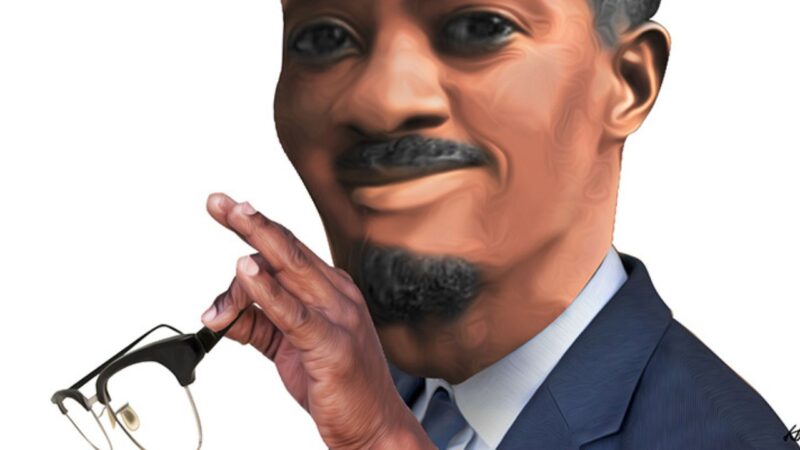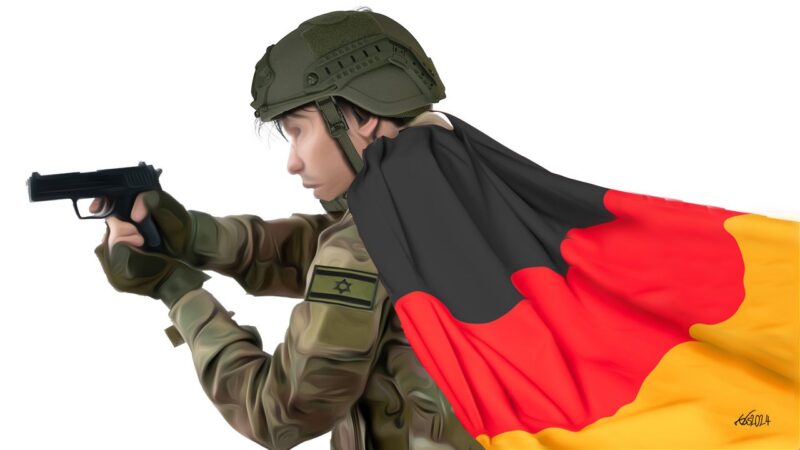In many ethnically diverse countries, state-building does not marginalize the dominant ethnic group and the state generally reflects or at least is not antithetical to their aspirations. This is not the case in Ethiopia where the Oromo people have been locked in a century-long battle with the Ethiopian state, despite forming an estimated half of the country’s population and inhabiting a large territory rich in natural resources. Several of the European imperial powers in earnest and later the US have supplied the necessary material and ideological support to the Ethiopian state, arresting the development of the Oromo people, and denying them —and the rest of Ethiopians— a dignified life. Although successive generations of Oromos have sought both violent and nonviolent means to end the resultant political and economic marginalization, they have always fallen short of success.
In 2018, the nonviolent Oromo youth movement forced a reshuffle in the ruling Ethiopian People’s Revolutionary Democratic Front (EPRDF), paving the way for Abiy Ahmed, an Oromo, to become the caretaker prime minister of Ethiopia on April 12th, pending general elections in 2020.
Prime Minister Abiy wasted no time in introducing a series of reforms: He lifted the state of emergency that was imposed by the previous administration, released thousands of political prisoners, and allowed the return of formerly banned opposition parties to the country. In a speech to parliament on June 18, 2018, he admitted that his party had committed gross human rights violations against innocent civilians over the past 27 years: “We have tortured, caused bodily harm, and even put inmates in dark prison cells,” he said, adding “These were acts of terror we used to stay in power.” He also pledged to revise repressive laws that were previously used to silence and eliminate people in the opposition.
In a political culture that relies on violence to get to power and even more violence to maintain it, the prime minister’s admission of crimes and subsequent apology was interpreted by many as a sign that Ethiopia was at the dawn of a new era.
For the Oromo who have long borne the brunt of this violence, this meant that their historically incompatible and therefore antagonistic relationship with the Ethiopian state was about to change. It seemed as if Ethiopia, an empire that was founded on the conquest and dispossession of what became its largest polity —Oromia— was on its way to democratize itself. Unfortunately, that hope was dashed, and not for the first time. As one Ethiopian journalist noted: “Ethiopia is at war with itself, again!”
Paul Henze, the CIA station chief in Ethiopia during the Derg regime, attributed Mengistu Haile-Mariam’s bloodlust and counter-insurgency in Eritrea, then part of Ethiopia, to his lack of “blue blood” and good “Ethiopian credentials.” Unlike all previous Ethiopian rulers (Orthodox Christian, Amhara/Tigre), Mengistu came from the Southwest which was brutally conquered by Emperor Menilik in the late 19th century. According to Henze, Mengistu, an ethnic Konta, “felt necessary to prove his nationalism and he had to prove he was as tough as anybody else and he was desirous of protecting Ethiopia’s interests.”
After eliminating the radical left in a bloody purge, Mengistu reverted to Amhara nationalism, staffing the 200-member Central Committee of the Workers’ Party of Ethiopia (WPE), which he founded in 1984, with an overwhelming majority of 118 Amharas, followed by 23 Oromo, and the remaining seats going to other nationalities. Menelik’s Avenue was featured in state ceremonies during his reign, and he personally visited and venerated Tewodros II’s tomb in the Lasta Mountains. As the insurgency against his regime intensified, Mengistu commissioned a previously dismissed royal historian to write a series of books emphasizing the continuity of the Ethiopian state through the lives of the last three emperors —Tewodros II, Yohannes IV and Menelik II. Notably absent was Haile Selassie, who was murdered and (reportedly) buried under a toilet by the Derg itself. And towards the end of his reign, Mengistu was said to frequently compare himself with Tewodros II. His current predecessor, Abiy Ahmed, prefers the phrase: “The seventh king of Ethiopia.”
In his famous book, The Wretched of the Earth, the Caribbean-born psychiatrist and political philosopher, Franz Fanon argues that people who have been colonized often internalize the values and beliefs of their oppressors and that this can lead them to conflate liberation with mimicking their oppressors. This inferiority complex manifests itself in many ways, including ‘lust’ and ‘envy.’ “The colonized man,” he writes, “is an envious man,” who fantasizes about the colonizer’s possessions, aspires to sit at the colonizer’s table, to sleep in his bed, “with his wife if possible.”
In this sense, to liberate oneself is to embody and fully become the oppressor. In the Oromo context, the apex of success in life, personal or political, is measured by how much one mimics Amhara culture, status, and way of life, however laced with Oromo symbolisms.
Prime Minister Abiy, like Mengistu, suffers from a deeply-entrenched inferiority complex, and his embrace of empire politics are symptoms of this colonial condition. This psychological dilemma was clearly at play in his speech at a town hall meeting in Eastern Oromia, where he advised Oromos to be like Jews “who prospered shortly after migrating to the US” as opposed to African Americans who “remained poor for dwelling on their past.” Ironically, he is making these statements while identifying with and glorifying Abyssinian rulers who subjugated the Oromo and other nations in Ethiopia in the past, and while at the same time preventing them from exercising their human and democratic rights today.
The disillusionment of Oromo youth with Prime Minister Abiy’s political trajectory is reflected in the song “Atii Enyuu?” (Who Are You?) by artist Chala Dagafa: “Oromo youth forced the TPLF back to their country, and you want to bring back the feudal system; What has gotten into you?”
Abiy’s plan for his constituency was made clear during a high-level meeting of his party, where he announced: “We need to rule Oromia like the Tigray People’s Liberation Front (TPLF) did Tigray—without any opposition!” His plan to centralize power became a reality when he subsequently dissolved the EPRDF, the ruling coalition that comprised political parties representing several national groups, and established a new “Prosperity” party, ignoring all due process.
The Oromo youth whose protest movement helped put the prime minister in power were quickly designated enemies of the state, and a massive crackdown against them soon ensued. This statement explains, in short, the drive behind the pacification campaign in Oromia. In other words, the regime intends to run Oromo youth out of the country and thus strip Oromos of their will to live, resist, and exist, much like the Eritrean regime did to Eritreans.
One must understand that the conflict between the Oromo and the Ethiopian state is not only of a political nature; it also has economic and social layers. In Wollo, now part of the Amhara region, it is due to a social order imposed on the people by the Amhara Regional State. In other parts of Oromia, it is about underdevelopment, response to natural disasters, namely drought, and historical grievances against the center (Finfinne). The Ethiopian state has used everything in its arsenal to win this war with constant failure. One weapon used in this perpetual war is dehumanization.
Dehumanization as a tool to consolidate state power
The logic of empire creates a binary, of ‘humans’ and “non-humans; of citizens and subjects. In the Ethiopian context, it’s the Amhara identity, culture, history, and value that forms the basis of what it is to be ‘human,’ or a citizen versus ‘others’ or subjects. Although individuals from Christian, non-Amhara backgrounds could rise to high offices in the country by deemphasizing their own identity and demonstrating the ability to subjugate their own group to the imperium, the collective agency of non-Amhara groups in Ethiopia is denied, their histories hidden, their cultures and traditions defiled, their resources plundered and youth population forced into joining the army.
As a policy, the Abyssinian/Ethiopian state has used dehumanization in its attempt to dispossess and contain the Oromo and other national groups. This is apparent in several dehumanizing terms ranging from “Galla” in the imperial times, to “Tabab Behretegna” (narrow nationalist) during the Derg, and “Terrorist” during the EPRDF.
With an Oromo at the helm, Oromos believed that the tales of being othered were behind them. They were wrong. The Ethiopian state came up with a new term for the Oromo: “Shane.” Since Abiy Ahmed’s ascension to power, an Oromo could be in Gimbi, Shashamane, Ambo, Bule Hora, Dembi Dollo, Jimma, or Naqamte, barely managing to conduct their daily business, often witnessing injustice and experiencing acute poverty, despite hailing from the richest region in the country and still experience state violence in its cruelest form.
The violence now is prompted not only because of their identity but also because of their opposition to an Oromo leadership. The moment s/he protests, a politician who is not Oromo, a foreign expert who never set foot in Oromia, and Oromo representatives would engage in an intellectual saga aimed at nothing but delegitimizing their demands and justifying inhumane measures taken against them by the regime.
Through no fault of their own, and often labeled by rivals, not peers, the Oromo find themselves always on the part of the aggressor. When Shashemene was turned into Aleppo by hooligans, Oromos, the owners of the city, were blamed for it. The media and the debate that followed legitimized the lunacy confirming without evidence that indeed Oromos burned down their city.
When Oromos from the Somali region were resettled in Adama, a city supposedly built to benefit the Oromo, they were attacked by non-Oromo residents of the town, unprovoked. Instead of holding these criminals accountable, the city administration decided to move the newly settled Oromos to the outskirts of the town, painting defenseless IDPs as the aggressors and legitimizing the perpetrators’ actions.
If Oromos were “Gallas” during the imperial period who lacked all the natural attributes that human beings possess— land, history, culture, rights, dignity — Oromo youth today are “Shane,” or “OLF Shane” and their lives are considered worthless.
The Ethiopian state remains structurally unchanged, but this time it’s the Oromos themselves who are propagating this dehumanization and killing their fellow Oromos. This is legitimized by the state, the civil society, and of course, the media, and the logic behind it is that an Oromo is at the top of the echelons of power.
Convincing everyone that a person’s life is worthless is hard work and requires a collective effort. This effort is evident by a practice of regime forces who made a habit out of filming themselves carrying out torture and summary executions and sharing the footage and photographs to social media influencers. Nathanael Mekonen, a pro-government online activist who appears to have links with regime forces on the ground, is one such case. He rose to prominence by sharing photographs of murdered Oromos on the messaging app Telegram, their faces mutilated and private parts exposed, in an attempt to further the humiliation and suffering of their families as well as propagate the idea that Oromo lives are worthless.
Normalization and Lack of Public Outrage
Psychology is important in normalizing inhumane behavior. Time and again in the dangerous game of politics, psychological warfare is employed to achieve a political goal. The goal is to strip well-intentioned people of their cognitive processes that reject the inhumane treatment of others and lead to the normalization of the dehumanization of other human beings. Dehumanizing Oromos has been practiced as a rite of passage into Ethiopianess and for some the only solution to the problems facing both Ethiopia and the Horn of Africa.
One can speak to refugees from Eritrea, Somalia, or Yemen who fled dangerous circumstances in their respective countries and hear them use phrases such as “Oromos are backward”, “Oromos must be lying”, “Don’t go to Oromia; it is dangerous for non-Oromos” while simultaneously choosing to only settle in Finfinne, Adama or Dire Dawa. A reaction that is reflective of the daily consumption of conversations where the Oromo’s supposed partners in the country blame everything under the sun on the Oromo but also an indoctrination into Ethiopianess.
The public debate in Ethiopia is victim to the rhetoric of illusory truth effect to legitimize state crackdown on both individuals and communities. The illusory truth effect put simply is the process of accepting information to be true because it was heard before. Henceforth, public debate in Ethiopia begins with a lie, as a rule of thumb, and then repeated endlessly.
On the need to break the cycle
The Oromo people stand at a critical juncture. While an Oromo elite, albeit in name only, controls the levers of state power, this same elite class has pursued a policy of dehumanizing and persecuting its own constituency to maintain its grip on power. This policy stems, in part, from the inferiority complex that deeply entrenches many Oromo elites. In fact, nearly every instance of instability in the country can be traced back to the Oromo elite in power, whose attempts to govern the country by emulating the Abyssinians has left them with no allies in Oromia, Tigray, and lastly Amhara itself.
The Oromo elite’s rejection of their core identity and their failure to adhere to the principles of the Gada system manifests itself in the othering, dehumanization, and persecution of their own people. One cannot build a family, let alone a state, while simultaneously killing one’s own kin and kith. Neither would the world respect such a person or group.
As the Oromo Archbishop Abune Sawiros aptly observed, “A person who suffers from an inferiority complex is of no use to himself, his family, neighbors, or his country.” The Oromo elite must heed the archbishop’s wisdom and embrace their true identity, and work with (instead of marginalizing) Oromo potential at home and abroad and build a strong Oromia and, in turn, a stable Horn of Africa.
If the Prosperity Party seeks to break the cycle of recurring conflicts that plague Ethiopia, they must end the war in Oromia at all costs and ensure accountability for the crimes committed under their rule. To achieve this, sharing power and broadening the political space is essential not only in Oromia but also in other regions.








